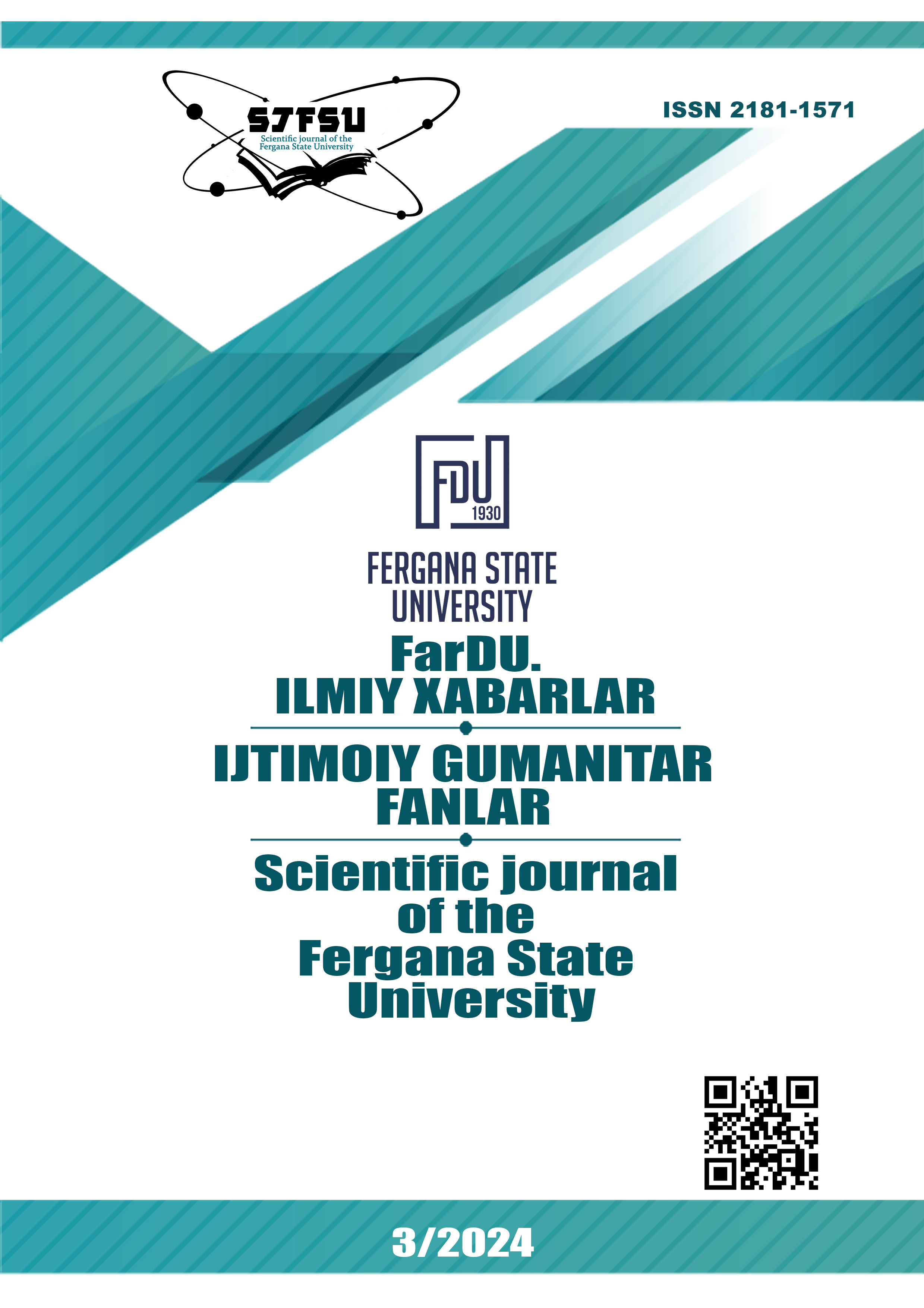CONTENT OF TUTORING PROGRAMS IN ABROAD EDUCATION AND POSSIBILITIES OF USING THEM
Keywords:
quality of education, higher education, tutoring program, research, experiments, project, qualification, supervision, evaluation.Abstract
This article covers information and explanations on one of the new systems reformed in our country, the tutoring activity and its impact on the quality of higher education, its advantages, and the extent to which it contributes to students being educated and successful. These will be covered based on the analysis of foreign experience, in particular, researches conducted in Portuguese universities. As a result of these researches, we can witness that a tutor is not only a teacher for a student, but also a person who is ready to be together and work in many other conditions, a motivator, an educator, an observer, a guide, a protector and an encourager. The tariffs of the introduced programs are explained in detail, and the qualities that the tutors who participated in the study should have more are determined based on a questionnaire from the participating students, and through this, it is possible to increase the effectiveness of using the programs in the tutor's work.
References
Alves, A.C.; Moreira, F. & Sousa, R. (2007). O papel dos tutores na aprendizagem baseada em projectos: três anos de experiência na Escola de Engenharia da Universidade do Minho. In A. Barca; M. Peralbo; A. Porto; B. Duarte da Silva & L. Almeida (eds.), Libro de Actas do Con gresso Internacional Galego Portugués de Psico Pedagoxía
Ana Margarida Veiga Simão, Maria Assunção Flores, Sandra Fernandes, Célia Figueira -Tutoring in higher education: concepts and practices - sísifo / educational sciences journal • no7 • sep / dec 08
Bandura, A. Principles of behaviour modifica tion. New York: Holt, Rinehart and Winston, Inc. Barnett, J. E.
Mentoring, boundaries, and multiple relationships: opportunities and chal lenges. Mentoring &Tutoring: Partnership in Learning, 16, 1, pp. 3 16.
Colvin, J. W. (2007). Peer tutoring and social dynamics in higher education. Mentoring &Tutoring: Partnership in Learning, 15, 2, pp. 165 181.
Dennison, S. (2000). A Win Win Peer Mentoring and Tutoring Program: A Collaborative Model. The Journal of Primary Prevention, 20, 3, pp. 161 174. Dias, G. F. (2006).
Psicoterapia breve dinâmica com estudantes do ensino superior. In G. F. Dias (org.), Apoio Psicológico a Jovens do ensino superior. Métodos, técnicas e experiências. Porto: edições ASA, pp. 53 83.
Guedes, M. G.; Lourenço, J. M.; Filipe, A. I.; Al meida, L. & Moreira, M. A. (2007). Bolonha. En sino e aprendizagem por projecto. Lisboa: Centro Atlântico.
Terrion, J. L. & Leonard, D. (2007). A taxonomy of the characteristics of student peer mentors in higher education: findings from a literature review. Mentoring &Tutoring: Partnership in Learning, 15, 2, pp. 149 164.
Wallace, S. & Gravells, J. (2005). Professional De velopment. Lifelong Learning Sector: Mentoring. Exeter: Learning Matters.
O‘rinova N.M; Muxammadjonova M.I - “Ta‘limda tyutorlik faoliyatining o‘rni va ahamiyatli jihatlari” – Ta‘lim innovatsiyasi va integratsiyasi 11-son_8-to‘plam_Dekabr-2023
O‘rinova N,M; Muxammadjonova M.I – “Edge Hill universitetida tyutorlik tizimi xususiyatlari” – Международный научный журнал № 8(100), часть 1 «Научный Фокус» Декабря, 2023
http://gep.ist.utl.pt/html/tutorado
http://www.ipcbpt/index.php?option=com_content&task=view&id=509&Itemd
Downloads
Published
Issue
Section
License
Copyright (c) 2024 Scientific journal of the Fergana State University

This work is licensed under a Creative Commons Attribution-NonCommercial-NoDerivatives 4.0 International License.

